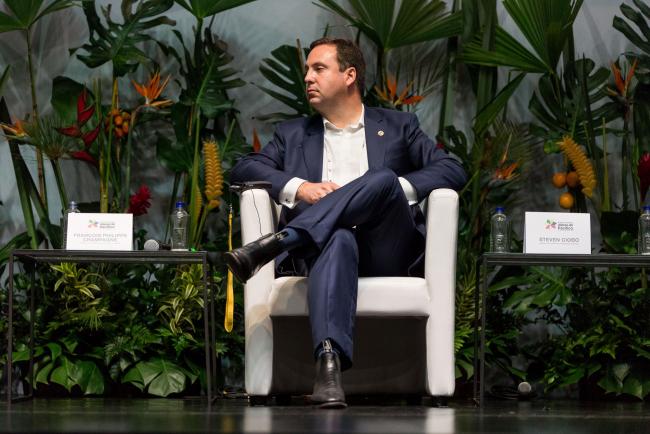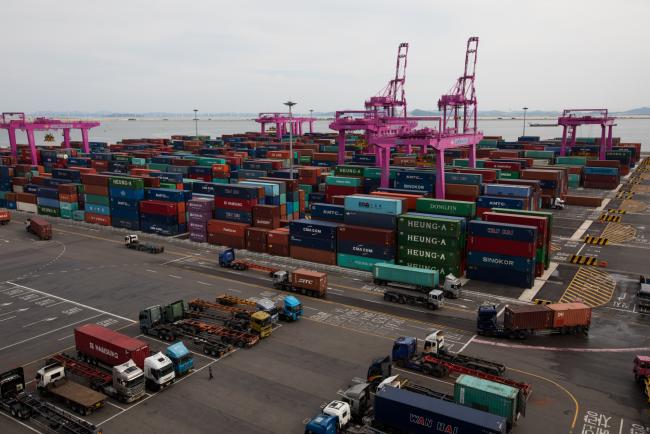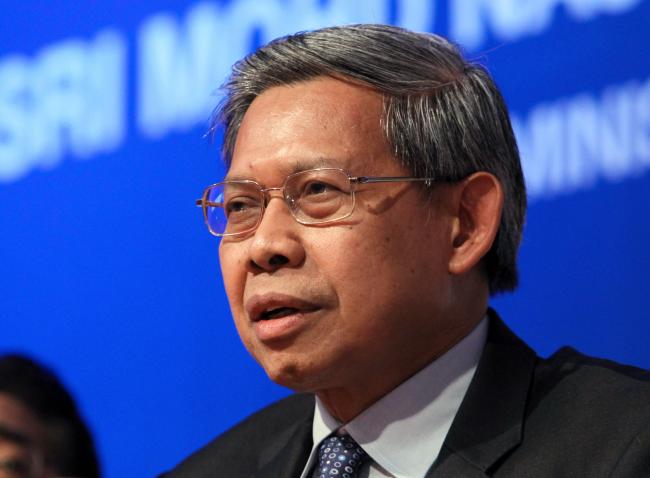(Bloomberg) -- Pacific nations are yet to agree on how to salvage a blockbuster trade pact after days of talks in Vietnam, with Australia confident of an outcome but Canada warning it wants a good deal over a fast one.
Trade ministers meeting on the sidelines of the Asia-Pacific Economic Cooperation summit are due to present their proposal on the future of the Trans-Pacific Partnership to leaders on Friday. At this stage, though, they still don’t have a deal.
The pact, which would have covered 40 percent of the global economy, was thrown into disarray when Donald Trump withdrew the U.S. in one of his first acts as president, leaving the remaining 11 countries scrambling to keep the deal alive. The discussions in Vietnam have centered around suspending some parts of the agreement in a bid to move forward without America’s involvement.
“We are hopeful of securing a deal inside the next 24-48 hours,” Australian Trade Minister Steve Ciobo said Thursday in an interview in Vietnam. “We’re not there yet -- there’s still a bit of work to do but we’ve been making steady progress,” he said.
“Like any deal it’s not done until it’s done and there’s still work to be completed, but we are very close and with a final nudge over the next day I hope we will get there,” Ciobo added.
Malaysia has also said the countries are moving toward a deal. But that optimism contrasts with Canada, whose trade minister Francois-Philippe Champagne said in an interview Wednesday that speed shouldn’t take priority over getting a good agreement.
‘Difficult Discussions’
“We are at the table, we’re being constructive, we’re being creative but let’s be honest, some are difficult discussions,” Champagne said. "For Canada it’s far more important to get the right deal than a fast deal. What we are here to do is set the terms of trade in the Asia-Pacific region for decades to come.”
Reports in the Japanese media late Thursday night of a deal were swiftly denied by Canada, the pact’s second-largest remaining economy. "Despite reports, there is no agreement in principle on TPP," Champagne said on Twitter. His country is pushing to beef up what it calls "progressive" elements of the pact, such as those on labor rights.
Japanese Finance Minister Taro Aso told reporters in Tokyo on Friday there were still details being hammered out, citing Mexico and Vietnam as two holdouts. One official involved in the talks said the Vietnamese negotiators had walked out of the meeting late Thursday evening after disagreement flared with another delegation.
Japanese Chief Cabinet Secretary Yoshihide Suga however said ministers were in alignment on quickly bringing TPP into effect. “I have received a report that people on the ground are making final adjustments to have the leaders confirm an outline agreement,” he told reporters.
The TPP was seen as a hallmark of U.S. engagement with Asia under the prior administration and a buffer against China’s rising clout. Then-Defense Secretary Ash Carter called it more strategically important than having another aircraft carrier battle group in the Pacific.
‘Changed the Metrics’
It would go beyond traditional deals by including issues like intellectual property, state-owned enterprises and labor rights. Champagne said Canadians expect any agreement to benefit the middle class and “give a chance to the small and medium-sized business to join the global trade.”
Ciobo said the U.S. withdrawal had “changed the metrics” for a number of countries. “That means there will be some aspects of it where we will agree to suspend the operation of certain parts of it, and that’s been the basis upon which we’ve been able to get now, I hope, an agreement.”
Speaking in an interview on Tuesday, Trade Minister Mustapa Mohamed indicated Malaysia had shifted from its prior stance that Trump’s decision to withdraw the U.S. meant the pact needed to be renegotiated.
“We’ve been talking with our colleagues on some provisions which could be suspended,” Mustapa said, without providing specifics. “Renegotiation would take a long time. All of us agreed that to renegotiate would probably take five, 10 years, so that’s not on. That’s a no go.”
(Updates with Japanese comments, detail from ninth paragraph.)



